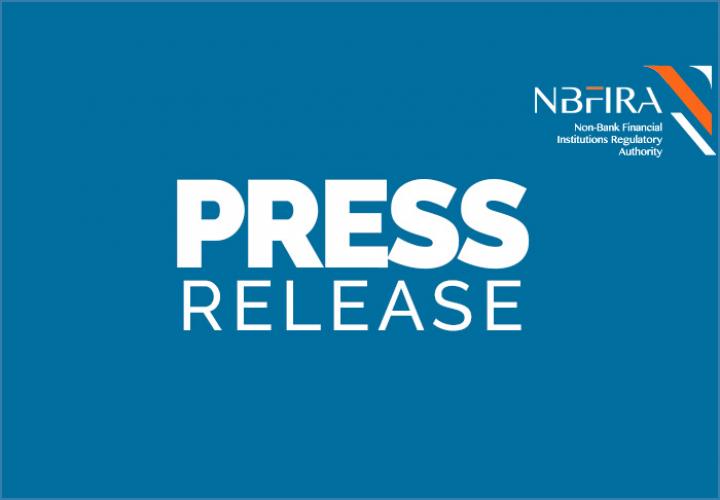Financial Stability Council Meets
The Financial Stability Council (FSC) met on August 25, 2020 to deliberate on recent developments in the financial sector, as well as to address regulatory and public interest issues relating to the stability, performance and prospects for the domestic financial sector.
Overall, notwithstanding the challenges engendered by the onset of the COVID-19 pandemic, the domestic financial system continues to be resilient, characterised by strong capital buffers, liquidity position and profitability. The enduring stability of the financial system is supported by a sound macroeconomic environment, efficient market infrastructure and effective legal and supervisory frameworks. Therefore, these favourable conditions enable the financial sector to perform its role and support economic activity in different economic cycles. Notwithstanding this positive macroprudential assessment, the FSC noted emerging vulnerabilities and elevated risks requiring close monitoring. These risks are associated with the structure and performance of the economy, as well as the impact of the Covid-19 pandemic, notably:
- the dependence on the external sector and, in particular, reliance on a single commodity for export earnings and related vulnerability to exogenous shocks;
- the importance of government spending on the economy and associated vulnerability to the fiscal position and any constraints to implementation of recovery and transformation plans;
- strong sectoral interlinkages that involve a relatively large exposure of banks to non-bank financial institutions (NBFIs) in terms of significant sources of funding; and
- bank lending that is dominated by credit to the retail and household sectors, including a significant proportion of unsecured personal loans; the household sector is vulnerable to sudden and sharp increase in borrowing costs.
In considering prospects for financial stability going forward, the Council observed that:
- the COVID-19 pandemic and the necessary disease containment measures will continue to have an adverse effect on economic performance in the short term and could, if protracted, further elevate risks to financial stability; in particular potential increase in default of bank loans and insurance premiums payments or contributions to pension funds, as well as, early pension withdrawals emanating from loss of employment and, constrained liquidity for some institutions which were not able to underwrite new business during lockdowns, as well as, lower profits and investment returns;
- while economic performance is severely constrained by the impact of the COVID-19 pandemic, proactive policy actions, including prevailing accommodative real monetary conditions, injection of additional liquidity into the banking system, other measures instituted by non-bank financial institutions to mitigate the negative impact of COVID-19 and expansionary fiscal policy support measures, continue to anchor soundness of the financial sector. Moreover, the economic recovery and transformation plan bode well for support of economic activity for the recovery phase;
- credit growth remains moderate and in line with nominal GDP growth rates and trends in personal incomes, thus posing minimal risk to financial stability. Credit risk is adequately managed as manifested by the relatively low non-performing loans ratio for the banking industry (4.5 percent of total loans in June 2020); and
- concerns around corporate governance and accountability issues in some segments of the pension and investments management industry are being addressed in an orderly manner.
Regarding the update on AML/CFT compliance issues, the FSC noted that the COVID-19 pandemic has delayed the consideration of Botswana’s progress report by the Financial Action Task Force – International Cooperation Review Group (FATF – ICRG). It is expected that the report will be tabled for consideration at the October 2020 FATF meeting. The last assessment, made in January 2020, had concluded that further progress towards rectifying the remaining deficiencies was needed, and that the country would remain under monitoring until December 2020. Meanwhile, the European Union has decided to include Botswana in the list of high-risk third countries effective October 1, 2020 on account of having strategic deficiencies in its AML/CFT regime. The implication of this is that EU banks and non-bank financial institutions are required to carry out enhanced customer due diligence, that is, require more information on financial transactions originating from Botswana clients, for as long as Botswana remains grey-listed by FATF. This has the potential to delay the processing of international payments, including for imports and offshore placements by local entities. Concerted efforts are ongoing to implement the FATF required action plan to address the identified deficiencies.
The FSC also noted the conclusion of the framework for the identification and designation of domestic systemically important banks (D-SIBs) by the Bank of Botswana (the Bank), and that a similar framework for identifying domestic systemically important financial institutions (D-SIFIs), by the Non-Bank Financial Institutions Regulatory Authority (NBFIRA), was at an advanced stage. D-SIBs and D-SIFIs are financial institutions the failure of which, could have a disruptive effect on the domestic economy and are subject to enhanced supervisory attention. Furthermore, the FSC noted the generally positive feedback, by various stakeholders, on the consultative paper proposing the establishment of a limited bank deposit insurance scheme for Botswana, thus allowing for further processing in 2020 -2021. NBFIRA will also explore establishment of other “bail-out” funds to protect clients in the non-bank financial sector.
Note for Editors
The FSC was officially launched in February 2019, and comprises senior officials of the Ministry of Finance and Economic Development (MFED), the Bank of Botswana (the Bank), Non-Bank Financial Institutions Regulatory Authority (NBFIRA), and Financial Intelligence Agency (FIA). These authorities have signed a memorandum of understanding (MoU) for the purpose of information sharing, cooperation and communication in the implementation of a macroprudential policy framework for Botswana.
For further information, please contact, Dr. Seamogano Mosanako. Head of Communications and Information Services, on mosanakos@bob.bw or telephone at +267 360 6083 or 360 6382 or +267 360 6315 or www.bankofbotswana.bw







